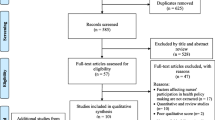Abstract
This study uses eight dimensions based on Taiwan’s Framework of Age-Friendly Hospitals along with two questions regarding medical treatment loyalty to develop the final questionnaire and to survey the elderly people aged 65 years old and above and/or their companions in a hospital of Taiwan. The results show that physical environment is the most critical variable to influence medical treatment loyalty. Relentlessly creating a good and friendly physical environment helps the case hospital continue to gain loyalty of elderly patients. Hospital image is the second important variable to influence the willingness to continue the medical treatment in this hospital. Physician-patient relationship is the second important variable to affect the willingness to recommend relatives and friends to this hospital. Finally, companions tend to have negative impacts on medical treatment loyalty than patients. Hospital management needs to seek medical supports and increase satisfaction from patients’ companions to strengthen medical treatment loyalty.
Similar content being viewed by others
References
Chi CY, Wu HH, Huang CH, & Lee YC (2017) Using linear regression to identify critical demographic variables affecting patient safety culture from viewpoints of physicians and nurses. Hospital Practices and Research 2(2):47–53.
Chiou ST & Chen LK (2009) Towards age–friendly hospitals and health services. Archives of Gerontology and Geriatrics 49(s2):S3–S6.
Groene O (2006) Implementing health promotion in hospitals: Manual and self–assessment forms. Division of Country Health Systems, WHO Regional Office for Europe.
Kim YS, Han SH, Hwang JH, Park JM, Lee J, Choi J, Moon Y, Kim HJ, Shin GJE, Lee JS, Choi YJ, Uhm KE, Kim IA, & Nam JW (2017) Development of the Korean framework for senior–friendly hospitals: A Delphi study. BMC Health Services Research 17:528.
Likert R (1932) A technique for the measurement of attitudes. Archives of Psychology 22(140):5–55.
MacStravic RS (1987) Loyalty of hospital patients: A vital marketing objective. Health Care Management Review 12(2):23–30.
MacStravic RS (1994) Patient loyalty to physicians. Journal of Healthcare Marketing 14(4):53–58.
Nunnally JC (1978) Psychomertric theory, 2nd edition. McGraw–Hill, New York.
United Nations, Department of Economic and Social Affairs, Population Division (2015) World population prospects: The 2015 revision, key findings and advance tables. Working Paper No. ESA/P/WP.241.
World Health Organization (2004) Towards age–friendly primary health care. World Health Organization.
World Health Organization (2008) Age–friendly primary health care centres toolkit. World Health Organization.
Yan YH & Kung CM (2014) Preliminary study of elderly patients’ satisfaction toward hospital brands and age–friendly policies. Taiwan Geriatric & Gerontology 9(4):184–197.
Yin SY, Huang KK, Shieh JI, Liu YH, & Wu HH (2016) Telehealth services evaluation: A combination of SERVQUAL model and importance–performance analysis. Quality & Quantity 50(2):751–766.
Author information
Authors and Affiliations
Corresponding author
Additional information
Yin-Ju Shih graduated in Global Executive Master of Business Administration Program, Department of Business Administration, National Changhua University of Education, Changhua County, Taiwan. She is a Secretary in Office of President, Show Chwan Health Care System, Changhua County, Taiwan. Her research interests are the improvement of service quality and the transformation of management processes.
Kuan-Kai Huang graduated in Department of Computer Science and Information Engineering, Asia University, Taichung City, Taiwan. He obtained his Ph.D. degree in Information Engineering from Asia University, Taiwan. His major research interest is service quality. He is a Supervisor in Center for Quality Management, Chang Hua Hospital, Department of Health and Welfare, Changhua County, Taiwan.
Hsin-Hung Wu is a University Distinguished Professor at National Changhua University of Education (NCUE), Changhua, Taiwan since August 2014. He is with the Department of Business Administration at NCUE since August 2004. In addition, he is an adjunct Chair Professor at Asia University, Taichung City, Taiwan since February 2017. He was elected as a Fellow of International Association of Computer Science and Information Technology in March 2018. Dr. Wu received his Ph.D. degree in the Department of Industrial & Systems Engineering and Engineering Management at University of Alabama in Huntsville, Huntsville, AL, USA in May 1998. His research interests include service quality, patient safety, decision analysis, data mining, and applied statistics. He has published 170 journal papers and 260 conference papers.
Rights and permissions
About this article
Cite this article
Shih, YJ., Huang, KK. & Wu, HH. Critical Factors Affecting Medical Treatment Loyalty Based on Taiwan’s Framework of Age-Friendly Hospitals: A Regional Hospital Case Study of Taiwan. J Serv Sci Res 10, 233–247 (2018). https://doi.org/10.1007/s12927-018-0008-8
Received:
Accepted:
Published:
Issue Date:
DOI: https://doi.org/10.1007/s12927-018-0008-8




